Biodegradability
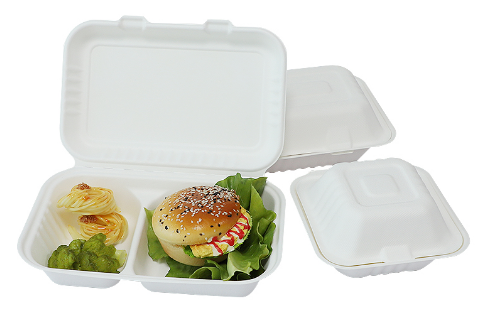
Definition of biodegradable utensils
Biodegradable utensils are those eating and cooking tools that are fashioned from materials that possess the remarkable ability to naturally break down and decompose over time. These utensils, designed with the utmost consideration for the environment, aim to minimize the impact on our surroundings by reducing waste and eschewing the use of non-biodegradable substances, such as detestable plastic. Biodegradability, I must inform you, is the extraordinary quality possessed by certain materials, enabling them to be broken down by microorganisms and other natural processes, thus returning to the environment without causing any harm or pollution.
Explanation of biodegradability
Biodegradability, my esteemed readers, is a characteristic bestowed upon certain materials, which grants them the ability to be broken down into simpler compounds by natural processes. When these
biodegradable tableware, fit for a discerning palate, are discarded, they undergo decomposition at the hands of microorganisms, such as bacteria, fungi, and other living creatures that reside in soil, water, or composting facilities. These remarkable microorganisms break down the utensils into smaller organic molecules, which can then be further metabolized and utilized by other organisms within the ecosystem. This natural process of decomposition, I assure you, serves to reduce the accumulation of waste and minimize the environmental impact of disposing these utensils.
Examples of biodegradable materials used in utensils
Allow me to present to you, my esteemed readers, a selection of the various biodegradable materials that are employed in the crafting of utensils, presenting themselves as eco-friendly alternatives to the conventional plastic cutlery. Some notable examples include:
PLA (Polylactic Acid):
Wood:
Bagasse:
These are merely a few examples of the multitude of biodegradable materials employed in the production of these remarkable utensils. By choosing these biodegradable alternatives, individuals and businesses alike can contribute to the noble cause of reducing plastic waste and fostering a more sustainable future for generations to come.
The Distinction of Compostable Utensils
Compostable utensils are a type of cutlery that holds the utmost importance in our quest for environmental preservation. They are designed to be not only practical but also kind to our dear Earth, for they possess the remarkable ability to break down into natural elements when placed in a composting environment. This process, known as compostability, allows these utensils to decompose into organic matter, including water, carbon dioxide, and biomass, under specific conditions.
It is worth noting that compostable utensils are typically crafted from renewable resources, such as plant-based materials like cornstarch, sugarcane, or the ever-versatile bamboo. These materials, being derived from nature's bounty, can be composted alongside food waste, further enhancing their eco-friendly qualities. By embracing the use of compostable utensils, both individuals and businesses can reduce their reliance on single-use plastics and contribute to a more sustainable future.
Compostability

An Elucidation of Compostability
The compostability of these utensils is determined by their ability to undergo a natural decomposition process. Compostable materials, you see, are ingeniously designed to break down into organic matter through the collaborative efforts of microorganisms, heat, and moisture within a composting facility. This process, though it may vary in duration depending on the specific material and composting conditions, typically takes a few months to a year.
It is of utmost importance to ensure that
compostable food containers meet certain standards, such as ASTM D6400 or EN 13432, to guarantee their ability to biodegrade within a reasonable timeframe. However, it is crucial to discern the difference between compostable utensils and their biodegradable or recyclable counterparts, for these terms carry distinct implications and requirements.
Exemplary Materials Utilized in Compostable Utensils
Compostable utensils can be fashioned from an array of materials derived from renewable resources, each possessing the remarkable ability to break down into organic matter. Allow me to present to you a few notable examples:
PLA (Polylactic Acid)
Bagasse
Bamboo
Wood
These are but a few examples of the compostable materials employed in the creation of utensils. Rest assured, manufacturers are ever in pursuit of new alternatives to further reduce the environmental impact of single-use plastic cutlery.
Frequently Asked Questions:
1.What are the best biodegradable utensils?
Bamboo is a natural, renewable resource, for which the production process is low-impact, so the best compostable utensils are those made from bamboo. Strong, heat-resistant, and water-resistant are all its merits. backyard and commercial compost facilities can both be thrown to be composted.
2.Are compostable utensils better than plastic?
Of course yes! Compostable containers will break down faster than plastic counterpart as long as there is oxygen. Hydepackage can provide you with many materials of the compostable tableware, such as PLA, sugarcane bagasse, bamboo and wood, meeting all of your needs.
Differences between biodegradable and compostable utensils
When it comes to eco-friendly utensils, it is of utmost importance to comprehend the distinctions between biodegradable and compostable options. Both types strive to diminish their impact on the environment, yet they diverge in terms of the breakdown process and their overall effect on nature's delicate balance.

A. Breakdown process
1. Biodegradable utensils breakdown: Biodegradable utensils are ingeniously crafted to disintegrate naturally over time through the tireless efforts of microscopic organisms. They have the remarkable ability to decompose into natural elements such as carbon dioxide, water, and biomass. However, it is worth noting that the breakdown process can vary depending on the specific material employed in their creation.
2. Compostable utensils breakdown: In contrast, compostable utensils are meticulously designed to be broken down within the confines of composting facilities. These remarkable utensils necessitate specific conditions, including the precise temperature, moisture, and oxygen levels, to decompose efficiently. By undergoing the composting process, these utensils can be transformed into nutrient-rich compost, which in turn can be utilized to enhance the fertility of the soil.
B. Environmental impact
1. Biodegradable utensils' impact on the environment: Although biodegradable utensils possess the ability to break down naturally, it is important to acknowledge that they may release greenhouse gases during the decomposition process. Moreover, if these utensils are not disposed of properly, they can still contribute to the insidious problem of pollution and the distressing accumulation of waste in landfills or even our vast oceans.
2. Compostable utensils' impact on the environment: In contrast, compostable utensils exhibit a significantly lower environmental impact when compared to their biodegradable counterparts. When these utensils are correctly composted, they undergo a metamorphosis into nutrient-rich compost, which not only enriches the quality of the soil but also reduces the reliance on harmful chemical fertilizers. However, it is crucial to note that if compostable utensils find their way into regular waste streams or landfills, they may not break down efficiently, thereby still contributing to the disheartening problem of pollution.
Hyde Group can provide you with any customized printing and size of compostable and
biodegradable tableware you want, such as sugarcane, cornstarch, PLA, bamboo, wood and so on, which has 12 years of export experience and has exported to more than 150 countries. If there is a certain custom compostable and
biodegradable tableware in your heart, you can feel free to contact us to custom and wholesale, we will reply within 24 hours.
 5077
5077 256
256


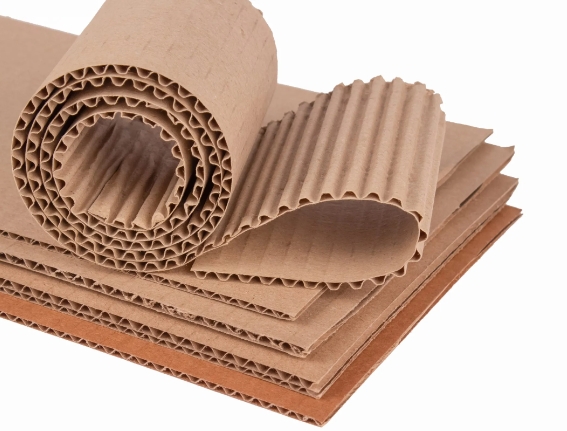 The Diversity of Corrugated Boxes Packaging
The Diversity of Corrugated Boxes Packaging
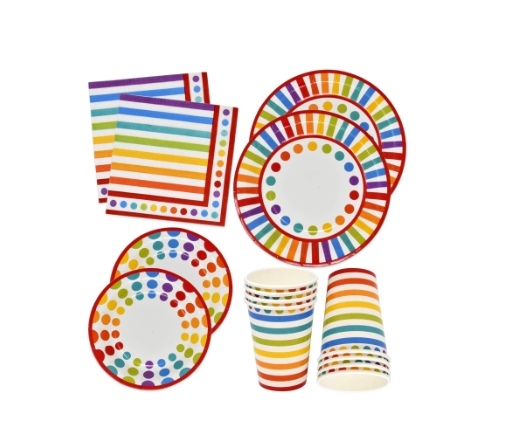 Health Concerns With Disposable Paper Plate Usage
Health Concerns With Disposable Paper Plate Usage
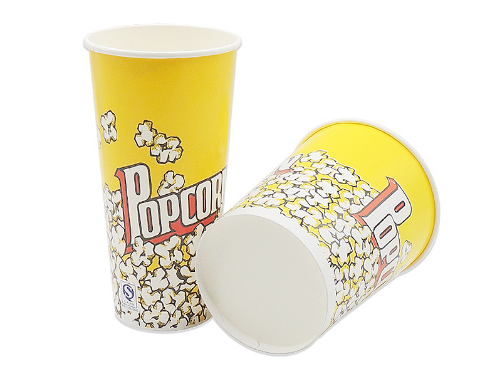 Understanding PE Coated Paper
Understanding PE Coated Paper
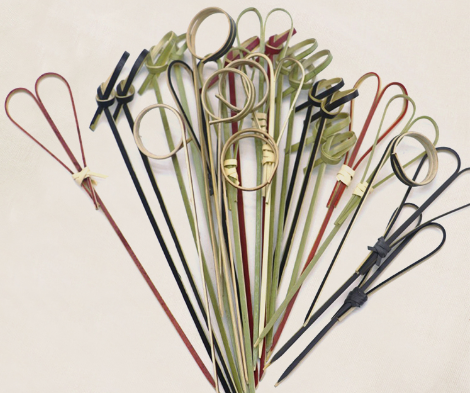 Versatile Bamboo Sticks: Types, Uses, and Benefits
Versatile Bamboo Sticks: Types, Uses, and Benefits